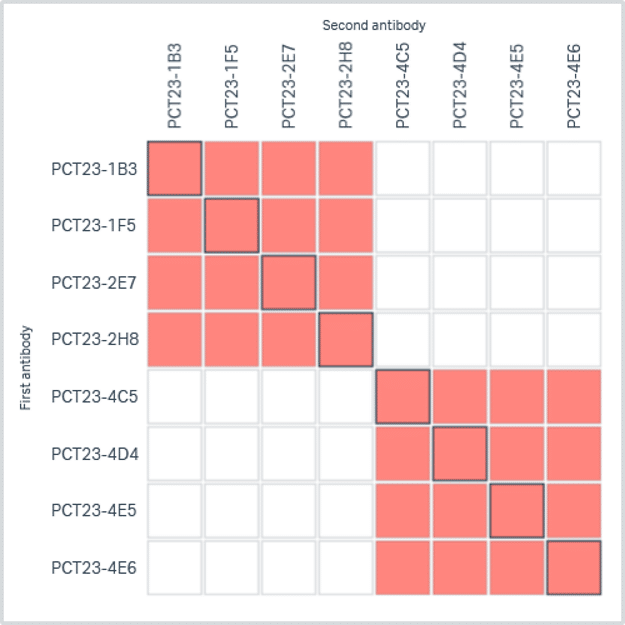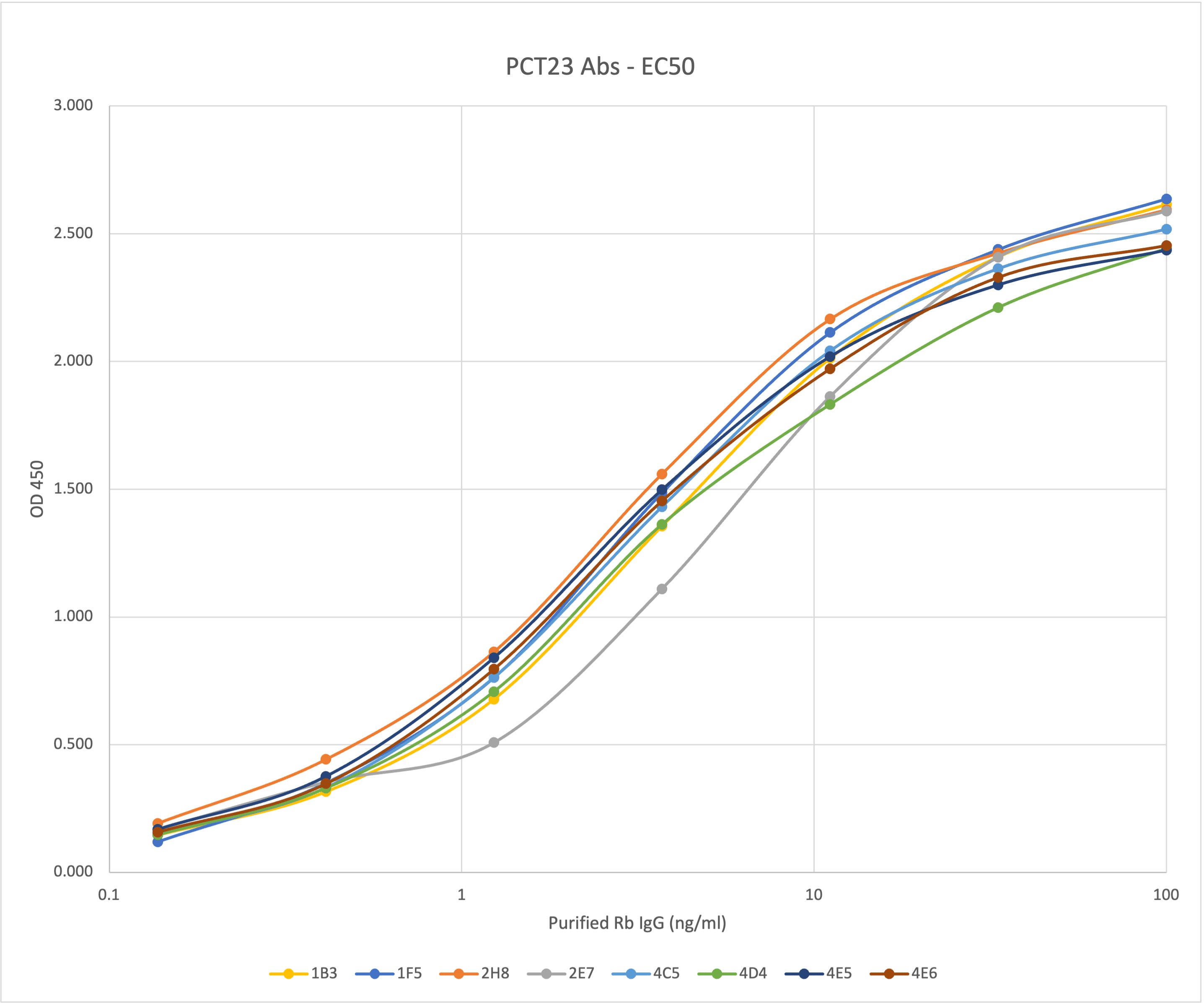Procalcitonin (PCT) rabbit monoclonal antibody, 2H8
Price range: $250.00 through $450.00
| Product Name | Procalcitonin (PCT) rabbit monoclonal antibody, 2H8 |
| Catalog Number | EX-2H8PCEX-2H8PC |
| Immunogen | Recombinant procalcitonin |
| Host | Rabbit |
| Preparation | Recombinant monoclonal antibody expressed in HEK293F cells and purified by protein A affinity chromatography. |
| Applications | 1:1,000-1:100,000 (platform dependent, customers must test the optimal concentration on their own platform) |
| Isotype | rabbit IgG, kappa |
| Conjugation | Unconjugated |
| Clonality | Monoclonal |
| Concentration | 1mg/ml |
| Purification | Protein A affinity chromatography |
| Storage buffer | PBS |
| Storage conditions | For long term storage, the antibody should be stored at -20℃ and is stable for 12 months from the date of receipt. Avoid repeated freeze-thaw cycles. For short term storage, keep at 4oC for a week should be fine. |
| Application Dilution | 1:1,000-1:100,000 (platform dependent, customers must test the optimal concentration on their own platform) |
Additional information
| Size | 100µg, 1mg |
|---|
Background information
Procalcitonin (PCT) is a peptide precursor of the hormone calcitonin, primarily synthesized by various tissues, including the thyroid gland, lungs, liver, and adipose tissue. In healthy individuals, PCT levels are typically low, but they rise rapidly and significantly in response to bacterial infections, especially severe infections like sepsis. This biomarker’s elevation is attributed to its production by these tissues in response to bacterial endotoxins and cytokines, particularly interleukin-6 (IL-6) and tumor necrosis factor-alpha (TNF-alpha), released during infection.
The clinical utility of PCT lies in its ability to aid in the differential diagnosis of bacterial infections from other causes of systemic inflammation. Unlike traditional markers like C-reactive protein (CRP), PCT levels increase more dramatically and rapidly in bacterial infections, allowing for early detection and differentiation from viral infections or non-infectious inflammatory conditions. This specificity supports clinicians in making informed decisions regarding antibiotic therapy initiation, duration, and monitoring, thereby contributing to improved patient outcomes and antibiotic stewardship.
In clinical practice, PCT is measured using immunoassay techniques such as ELISA, which offer high sensitivity and specificity for quantifying PCT levels in serum or plasma samples. These assays are crucial in various healthcare settings, including emergency departments, intensive care units (ICUs), and outpatient clinics, where rapid and accurate diagnosis of bacterial infections is critical for timely and effective patient management.
Datasheet
| Datasheet | Download |
Validation data
| Validation data | Download |


Reviews
There are no reviews yet.